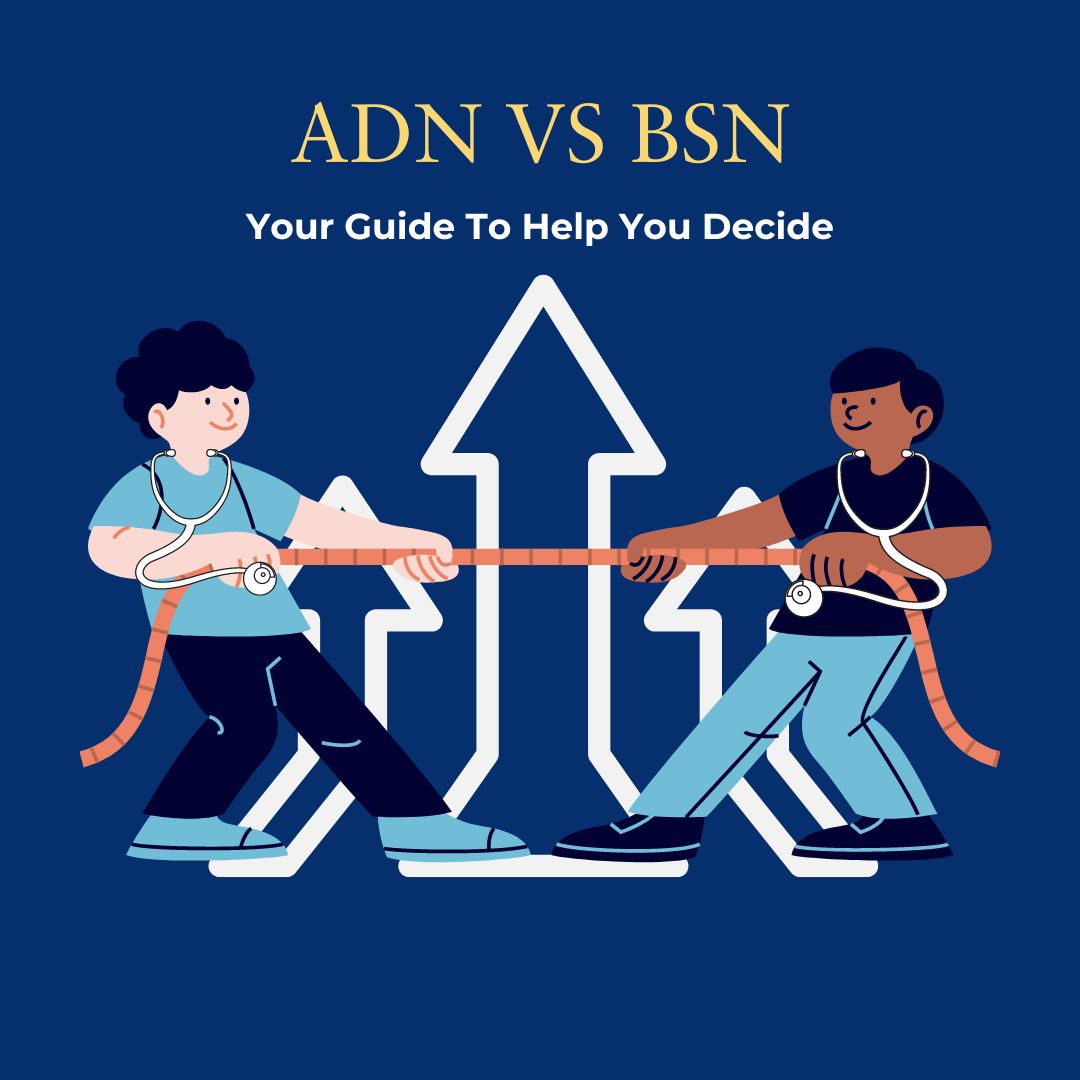Licensed Practical Nursing or Registered Nursing!
Your Path to Nursing in Ohio!

Have you explored the pathways to becoming an LPN or RN? Many people hear the word “nurse” and have a general assumption about what it means to be one, but those in the field know there is much more to it. Whether you are aiming to become a Licensed Practical Nurse (LPN) or a Registered Nurse (RN), this is for you. Discover your path to nursing today.
As you know, to become a nurse, you have several entry options. Without a doubt, weighing the pros and cons of each is vital to making the best decision for you and your life. For instance, you can become a Licensed Practical Nurse (LPN) by completing a one-year training program. On the other hand, working on your Associate’s Degree in Nursing (ADN) or Bachelor of Science in Nursing (BSN) can set you on the path to begin your career as a Registered Nurse (RN). What are the pros and cons of each option? Let’s break it down
Pathways to Becoming an LPN or RN
Licensed Practical Nursing (LPN)
To become an LPN, you must receive a diploma and pass the NCLEX-PN, a national licensing exam. LPNs work under the supervision of doctors or registered nurses (RNs) to provide day-to-day care to patients.
The most significant advantage of becoming an LPN is how quickly you can enter the field. This path may be ideal if you need to start your career as soon as possible and want to save money on additional education. LPNs are responsible for providing routine care associated with nursing; however, the position offers limited upward mobility. If you want to grow your career, increase your earnings, take on more responsibility, or specialize, becoming an LPN might not be the best direction.
Registered Nursing (RN)
There are two routes to becoming an RN. Students can pursue their ADN with two years of schooling and pass the NCLEX-RN. Alternatively, students can get their BSN with four years of education and pass the NCLEX-RN. Both degrees lead to becoming a registered nurse.
Typical responsibilities of a registered nurse include administering medications, performing diagnostic tests, providing direct patient care, and maintaining medical records. ADNs are typically limited to entry-level positions focusing on these responsibilities. A BSN allows for career growth, specialization, higher salary, and more responsibility. However, with an ADN, you still become an RN and can start earning an RN salary sooner.
How to Decide, LPN or RN? Licensed Practical Nursing or Registered Nursing?
When deciding between becoming an LPN or an RN, consider your career goals, time commitment, and educational investment. If you need to enter the workforce quickly and with lower upfront educational costs, becoming an LPN might be the best option. LPNs can start working in healthcare settings within a relatively short period and begin gaining practical experience. However, if you are looking for broader career opportunities, higher earning potential, and the ability to take on more responsibilities, pursuing an RN through an ADN or BSN program is the better choice. RNs enjoy more significant career growth, opportunities for specialization, and leadership roles within the healthcare industry. Assess your personal circumstances, career ambitions, and the time you can dedicate to education to make the best decision for your nursing career.
Deciding Your Career Path: Train to Become a Nurse
If you are considering a career in nursing, it is essential to understand the various options available. To begin with, schools of nursing offer a range of programs designed to suit different career goals and time commitments. For instance, those looking to quickly enter the healthcare field will find that LPN training is an excellent choice. Specifically, LPN courses provide the foundational skills and knowledge necessary to begin working as a Licensed Practical Nurse in a relatively short period. Furthermore, nursing school programs, including LPN programs, are designed to be comprehensive, ensuring that graduates are well-prepared for the demands of the nursing profession. Consequently, by selecting the right program, you can embark on a fulfilling career path with confidence.
When choosing where to train to become a nurse, it is important to research various schools of nursing to find the program that best fits your needs. LPN training programs typically include both classroom instruction and hands-on clinical experience, allowing students to apply what they learn in real-world settings. These LPN courses cover essential topics such as patient care, pharmacology, and medical terminology. By completing a reputable nursing school program, you can embark on a rewarding career as an LPN, equipped with the skills and knowledge to make a meaningful difference in patients’ lives.
When deciding between LPN and RN, the most significant consideration is time. Do you have time to commit to a longer program in exchange for a degree, a higher salary, and more responsibility? If so, the RN path is the way to go. If you are looking for an accredited nursing school with direct admission, no waitlist, and small classes, consider Beckfield College.
Learn more about Beckfield’s nursing programs at Beckfield Registered Nursing or Beckfield Practical Nursing.
You Can Do More!
Thus, RN and LPN are entry-level nursing paths, but you can take them further. Want to learn more about advancing your nursing career beyond RN? Stay tuned for the next blog to discuss careers beyond RN.
Are you ready to enroll in nursing school? Do you have more questions? Visit us at beckfield.edu to reach out with questions, apply, or refer a friend.
References
https://everynurse.org/careers/registered-nurse/
https://nursejournal.org/degrees/bsn/rn-and-bsn-degree-differences/
https://www.nursingprocess.org/registered-nurse-pros-and-cons.html
Nursing careers! LPN vs RN!
